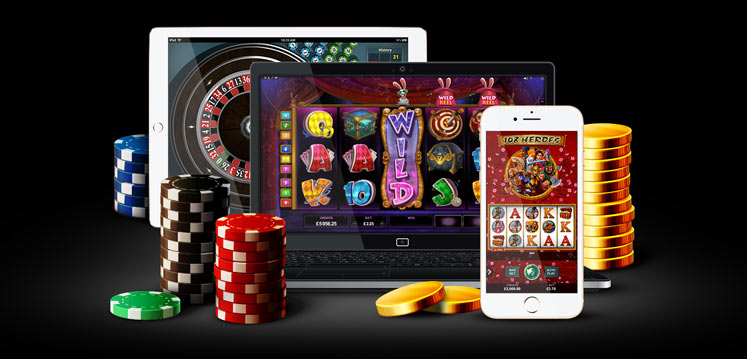
As an avid gambler, there comes a time when playing just for fun no longer satisfies the need for excitement. The stakes seem too low – the swings too small. You crave the adrenaline rush of having thousands on the line with every bet. Your skill level has increased and you’re ready to pit it against the house edge for the chance to win big. This is when many players make the jump to high roller status at online casinos.
Becoming a high roller can lead to the most thrilling and rewarding gambling experiences out there. With persistence, bankroll management and strategic play, you can leverage your skills for the chance to win life-changing stacks of cash. Just be warned – the highs are higher, but the lows can be brutal. Manage risk wisely or you might lose your entire bankroll in one disastrous session.
Defining a High Roller
There is no universally accepted threshold that magically transforms you into a high roller. In general, you can consider yourself one if you consistently wager $5,000 or more per hand, spin or betting round. Some casinos like Corgi Bet Casino set the bar at $10,000+ bets. Compared to the average player who wages $5–$50 per round, high rollers risk and win sums of cash that seem staggering.
|
Betting Thresholds |
Game Examples |
|
Low Roller |
<$50 bets |
|
Average Player |
$5-$500 bets |
|
High Roller |
$500-$5,000+ bets |
|
Whale |
$10,000+ bets |
For reference, a casino might comp rooms, meals and amenities for players betting $500+ per round. At $5,000+ bets, you can expect VIP treatment, including free flights, luxury suites and personal casino hosts at your beck and call.
Bankroll Requirements
Although skill plays a role, luck is still a dominant factor in casino games. To avoid reckless betting and financial ruin from inevitable downswings, responsible high rollers use bankroll management based on statistical realities.
The commonly accepted minimum is 300 big bets for any gambling session. So if your average bet size is $5,000, your bankroll must be $1.5 million. Even then, be mentally prepared to lose hundreds of thousands in a losing streak. Of course most sane players start smaller, perhaps risking $500 per bet with a $150k bankroll. But the bigger you play, the buffer your bankroll needs.
Bankroll requirements scale exponentially with bet sizes. At $10,000 average bets, the 300-bet bankroll soars to $3 million. And the psychological fortitude to endure 7-figure downswings without tilting is perhaps the hardest and rarest skill a high roller can possess.
Game Selection
Casinos offer a variety of games, but they are not equally profitable for high rollers seeking to leverage skill against the house. Slots and roulette depend purely on luck, while card games like blackjack and video poker allow skilled play. Poker is best with no house edge if you only play against other players.
Select your games wisely based on your personal strengths. Study basic strategy rigorously before playing for high stakes. Tiny percentage differences in the house edge translate to tens or hundreds of thousands in expected profit or losses. Small mistakes can be brutally costly.
For most players, blackjack offers the best odds. Counting cards even tilts the odds slightly in the player’s favor. Just be prepared for casinos to ruthlessly counter card counters while catering to typical high rollers. Other skill-based games like baccarat and video poker also feature low house edges around 1–2% for perfect play.
Compare that to slots with 10%+ house edges where no strategy can overcome the built-in disadvantage. Even getting comps as a reward player might not offset the huge expected losses from high stakes slot play over time.
Risk Management
Chasing losses with bigger bets is how many high rollers ruin themselves in spectacular fashion. Emotion and ego cannot interfere with rational betting limits. Set a stop loss amount ahead of time, perhaps 20% of your bankroll. Walk away for the day as soon as you lose that amount from any initial peak balance. This requires stoic discipline and acceptance of negative variance.
Table game conditions also matter hugely. Rules that favor the player in blackjack pay out 3
on naturals instead of 6
. And single deck blackjack has lower house edges than shoes with 8 decks. Study the fine print and shop around for the best high roller options.
Similarly, video poker pays close attention to pay tables. Full pay games pay out over 99% to perfect play while short pay machines can cost you 5% or more of your bankroll over huge sample sizes.
Psychology & Lifestyle
Assuming you have the starting bankroll, becoming a profitable high roller involves practical factors and intangibles. Bankroll math defines how much you can safely wager. Game math gives you small but real advantages against the house. But perhaps most important is mastering the psychological game.
Cultivating a mindset to handle the extreme ups and downs requires almost magical thinking. Arrogance blinds you to risk while doubt creates paralysis. Ego can ruin your career in one disastrous all-in bluff. Meanwhile imposter syndrome might starve you of the confidence needed to value bet thinly as a huge favorite.
Beyond the felt, lifestyle matters also. Good health, fitness and sleep keep your mind sharp. Burnout builds tolerance for risk, while alertness spots exploitable mistakes. More successful high rollers structure their lives almost monastically to maintain energy and focus for long sessions.
Finally, game selection evolves over a career. Players often start by mastering blackjack before graduating to poker. The highest stakes pit your skills directly against other players. But beating live cash games or high roller tournaments demands far more study and practice. For those few who master it, poker offers the most financially lucrative path to high-roller glory.
